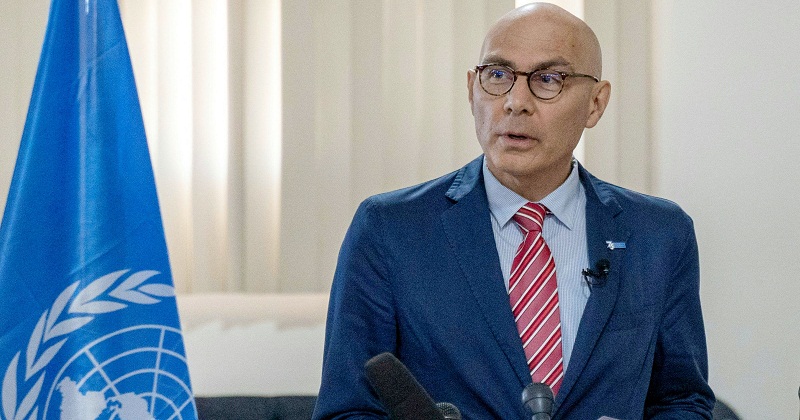Published: / Times Read

During the anti-discrimination student movement in Bangladesh, the United Nations warned the Bangladesh Army that if they resorted to suppression, their participation in peacekeeping missions could be halted.
This was recently shared by the UN High Commissioner for Human Rights, Volker Turk, in an interview on BBC's Hardtalk.
The discussion, which aired last Wednesday on BBC World Service, focused on the impact of conflict and violence on human rights and humanitarian aid. Volker Turk, who was in Geneva, Switzerland, at the time, spoke to BBC journalist Stephen Sackur. The presenter started by mentioning the increasing global conflicts.
Volker Turk explained that as a result, violations of human rights have frequently made headlines. Currently, violent incidents have occurred in 59 countries, with geopolitical reasons behind these conflicts.
When the presenter pointed to Gaza, Ukraine, and Sudan, Turk acknowledged the loss of life, stating that the UN tries to minimize casualties as much as possible. He attributed the lack of open and free democracy as a major cause for these issues.
When asked about the impact of major countries like the United States leaving the UN Human Rights Council under Donald Trump, followed by a shift in Nicaragua's stance, and how small countries were influenced, Turk responded, "I would like to give you the example of Bangladesh. You know that last year, in July-August, there was a massive student movement. The government of Sheikh Hasina resorted to repression. The good news is that our voices were loud then. We warned the military, telling them that if they got involved, they would no longer be allowed to participate in peacekeeping missions. As a result, we saw a change. Dr. Muhammad Yunus took responsibility for the government, and we saw what measures had to be taken under the spotlight.